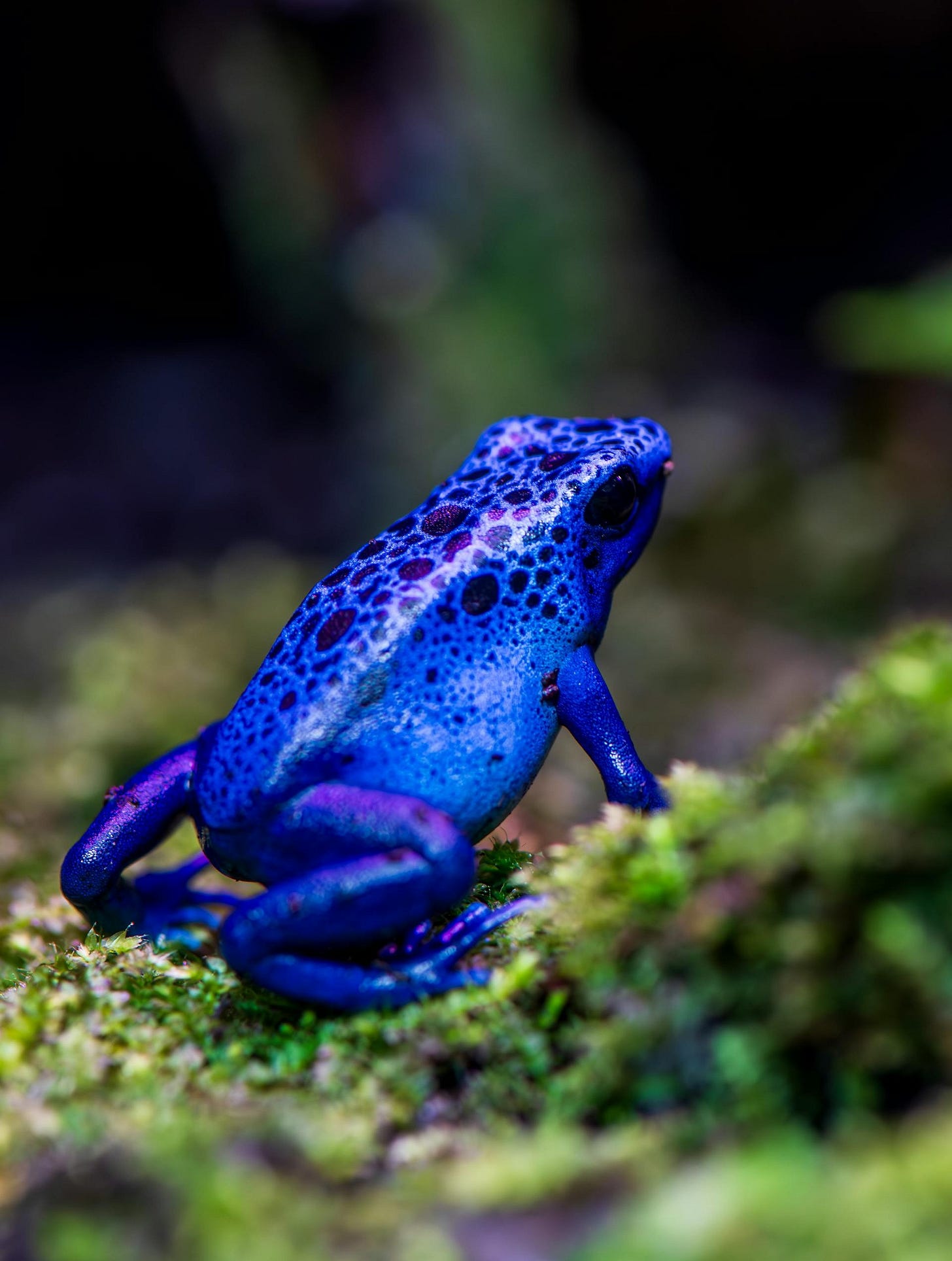To control a person, first you must reduce them. Subtract from them. Divide them into fractions. I am deeply loving. I am deeply hateful. I am peaceful. I am rageful. I am hermit. I am revolutionary. I am yielding. I am radical. I am humble. I am excellent. I am tender. I am harsh. I am beauty. I am terror. I am elegance. I am disgrace. I am blinding light. I am all-consuming darkness. I create with one hand. I destroy with the other. How can one ever reduce this? Yet from birth, I am brown woman. In school, I am brown woman. At work, I am brown woman. On the streets, I am brown woman. But I create with one hand. I destroy with the other. And the time for playing small is over.
Some believe that our true essence is most untouched when we are small children. When we have yet to be imprinted on by the outside world, by our parents, our culture, and by trauma. Looking back on what we were naturally drawn to when we were very young can remind us of what we held sacred and point us back in the direction of ourselves.
When I was a small child, there was only one thing I truly cared about, and that was the protection and conservation of endangered wild animals. They were my first love - my attention only later turned to humans out of painful necessity. This deep love was pre-internet and it was very different to what everyone else cared about in my family. I remember crying over World Wildlife Fund adverts and asking my mum to send money to sponsor endangered tigers in India, which she did. This, of course, predated my knowledge of white saviourism and how it plays out within charitable causes within the global South. All I cared about then was that these incredibly sacred and powerful creatures be protected from poachers, who were willing to take their lives for their own personal gain and couldn’t see that if they continued to hunt them, they would eventually have nothing left to hunt. My love for tigers soon grew into a love for all wild animals, particularly the poison dart frog of Central and South America, whose poisonous, brightly coloured skin serves as a warning to predators, and a great natural gatekeeper. A particular species of this tiny frog has the capacity to kill many people at once, yet humans have yet again proved ourselves more dangerous as we continue to endanger them by encroaching upon their habitats. Indigenous people, however, used their poison on the tip of their blowdarts to hunt, often releasing the frog after doing so. I loved hearing stories of how they lived harmoniously with nature in deep reciprocity, reverence and protection.
Protection. Looking back on my life, I realize that this has always been a key value and innate quality of mine. Not the kind of over-guarding that comes with great trauma, although I’ve definitely done that too, but a healthy protection that keeps out further harm, extraction and abuse. The kind of protection that insists, this is where I draw the line.
Like many of us, I learned this the hard way. Through experiencing abuse from the very people that were supposed to protect me - my family. Of having racial slurs thrown towards me on the street or at school, and having no-one speak up for me. This is particularly common in diasporic families who have been systemically uprooted and fragmented by colonialism. We turn on each other, and in doing so, we turn on ourselves. Often, it's been so long since we've had healthy protection that we would almost be suspicious of it if we were to suddenly experience it.
Colonialism was a masterclass in the breaking down of the gates of protection. It was a mass violation of boundaries - of land, of people, of bodies, of spiritual lineages, of bloodlines, of human rights, of our right to health, freedom and happiness. It was a crossing over of all the sacred lines that we had built around our lives and cultures over thousands of years. It came without permission, without question, and it was further allowed by those who betrayed their own people in the face of fear, bribery and manipulation. They were not healthy gatekeepers, and we all paid the price for it.
As colonized people, we see how so much of our sacred practices - ones which we were once ridiculed for - are now being extracted and exploited at an alarming rate. This dilution and desecration of once gatekept rites, rituals and practices are now unrecognizable from their original form, and being sold off by those who still benefit from our oppression. Foods which we once hid for fear of being bullied are now being peddled by these very same people as the next superfood, with absolutely no acknowledgement of the harm caused.
We have seen how, after years of extractive tourism, the residents of Hawaii asked people not to travel there to prevent further harm to their land, culture and ecosystem. In Jamaica, inhabitants of the island don’t even have access to most of their beaches anymore because of private western landowners buying all the land for their hotels. In Japan, there is now a shortage of Matcha due to western overconsumption. Land and resource grabs are behind the current genocide in Gaza, and is the reason why the fertile and resource-rich global south is still far more impoverished than the resource-poor global north, whose wealth solely relies on the maintenance of these deliberately engineered inequalities.

But what would happen if we started drawing the line?
For me, healing from colonial harm requires an inner reverse-engineering of what happened. A clear, direct acknowledgment of what brought us here, and an understanding of the context within which we now exist. A reinstatement of what is sacred, and a drawing of lines around it. A clear definition of what is important to us, and a commitment to protecting that.
For these reasons, I am a firm believer in gatekeeping the sacred. I don’t believe just anyone and everyone should have access to our cultural practices, our energy, our time, our food and various other things which were mined, stolen and extracted for hundreds of years. And even though I believe everyone has the right to housing, nourishment, ethical wealth, dignity and respect, no-one has a right to just take what is not given with consent when it comes to someone else’s culture. Nor do they all have the capacity to responsibly hold that information in a way which is safe for themselves and others.
As a first generation British-born Indian woman, the question of giving endlessly to the dominant white culture would not have been an issue even a generation back, as they would have been surrounded by people of colour. There are things I used to share freely with all, but now do not because of the inherently extractive nature of the relationship. Where I once shared my carefully honed dahl recipe with anyone who enjoyed it, I won’t share it with white people anymore. Where I once made friends with anyone, I now reserve my sacred time and energy for people of colour. This is because, unless white people are actively decolonizing and divesting from the systems which benefit them at the expense of colonized people, the friendship will inevitably perpetuate that extraction in one way or another. And because I’m someone who likes to pour a lot of my love and energy into relationships, that dynamic just isn’t going to work for me. Until then, I choose to protect my own sacred resources by keeping a healthy distance.
Not everyone needs to do that, of course - this is just what I’ve personally decided on due to my own experiences. But we each have a right to say no when someone is demanding a resource of us which they are not entitled to. There is no law which beholds us to give of our sacred time, energy, relationship, ancestral rituals, books or foods if we do not actually wish to. And those who get upset when we don’t share this with them are always the ones who have been benefitting from a imbalanced exchange. Sure, it might be disappointing for them, but those who respect your boundaries will understand. Watch how people react and this will give you a great deal of information. And - disclaimer - we also need to check where we may be extracting from others and, as my teacher says, clean up our side of the street. This is ultimately about using healthy boundaries to build truly reciprocal relationships, not about perpetuating further harm.
The personal is political, and these small acts make a huge difference in how we view ourselves and our value in the world. Colonialism was so powerful because it deliberately chipped away at our sense of self. It drew lines within us and between us, rather than around us. It fractured us from the inside, which made us, as Clarissa Pinkola Estés would say, instinct-injured. Not able to tell right from wrong. Healthy from unhealthy. So broken that up was down and left was right. And this made us susceptible to having our boundaries violated over and over again until we became ghosts of ourselves. The great irony of colonialism is that, while it was convincing us to hate ourselves, it coveted and stole from us all of the things it had deemed unworthy, thereby negating its own claims and exposing the lie. You don’t break into a house full of trash because there’s nothing to steal, and you don’t copy from someone you don’t admire. The truth is the exact opposite of what we were told, and it’s time we woke up to that.
When the internalised voice of white supremacy accuses us of being divisive by drawing protective lines, let us remember that this is the voice that commanded the arbitrary carving up of lands, tribes and peoples across many great continents, including Africa, Turtle Island and Asia, simply to serve its own greed. It had no problem in turning entire communities against one another by drawing the infamous line that would cause the bloodshed of the 1947 partition which still reverberates through South Asian bodies, communities and politics even today. This is the voice of apartheid, of genocide, of ecocide, when drawing lines conveniently serves its own desires. It lies behind the stirring up of anti-blackness, islamophobia and colourism within colonized communities, instead pointing us towards whiteness as the pinnacle of true wealth, intelligence, health and morality - a goal which will always be out of our grasp, no matter how much we strive, because we will never, ever be white.
Gatekeeping has been given a bad rep recently, and I want to reframe that. Like with literally everything else, it can be used for harm or for good. When done healthily, it’s what keeps endangered animals protected and prevents further harm and extraction from continuing to desecrate our planet. And if there is grief in knowing that even we might not be able to visit some of these protected spaces, know that it’s only in the last 50 years or so that we’ve even been led to feel entitled to them, due to the rise of tourism. Our grief is valid - I have felt this too due to ingesting the white supremacist notion of having the right to access everything - but what’s more important; that we get access, or that these sacred areas, practices and beings literally survive?
Supremacy makes us believe that the world centres around us, and that it’s simply a playground we can colonize and use to our advantage before discarding it in a much worse state than we found it. Someone else will sort that out, is what we often think. But the ones having to sort out this mess - as billionaire Bezos shoots female celebrities into space in a dubiously phallic craft, creating more pollution than Taylor Swift’s private jet - is us. And the disproportionate responsibility is shouldered by black, brown and indigenous people, who are always at the front lines of climate crises, and upon whose oppression capitalism was built.
As leaders - of ourselves and of others - where do we draw the line? Even though we can’t ever guarantee safe spaces, I’ve been reflecting on what makes me feel the most safe in groups, and what I strive to maintain as a leader. And that is when I know where we’re willing to draw the line. What we will and won’t stand for. Our principles. Our establishing of group agreements or boundaries. Will we say something if we witness extraction and disrespect? What will we allow in the space, and what will we make very clear is unacceptable? Are we seeking to protect, encourage and empower the most vulnerable and historically silenced people in the group, or will we remain silent? Are we trying to rebalance the distribution of power in the room or unconsciously perpetuating it? There is no perfect answer to this, merely ongoing reflections and everyday practice.
So I shall leave you with this too, just as I continue to ponder on where my own lines are. Who, how and what we gatekeep is up to us, but know that you have a choice. These lines can, and should, shift over time as we evolve, and I also believe that when we know where we stand, we are much more able to move through spaces and communities with a greater sense of self, able to stay rooted in our truth even when others hold opposing values and beliefs, without collapsing into fear or doubt.
And where colonialism reduced us to one-dimensional shadows of ourselves, I offer this as an invitation to consciously destroy the lines which do not serve our flourishing and create those which protect the many beautiful and complex multitudes of who we are.
For leaders of colour who wish to dismantle empire by healing the empire within themselves, I offer consultancy sessions to provide gentle guidance through the process. The website is currently under construction so please contact me if you wish to work together.
For those navigating their own journey with grief and would like a guide through the underworld of death, grief and loss, you may find my poetry book Half Woman Half Grief beneficial.
Click here to explore my full collection of talks, podcasts, books and articles.














Share this post